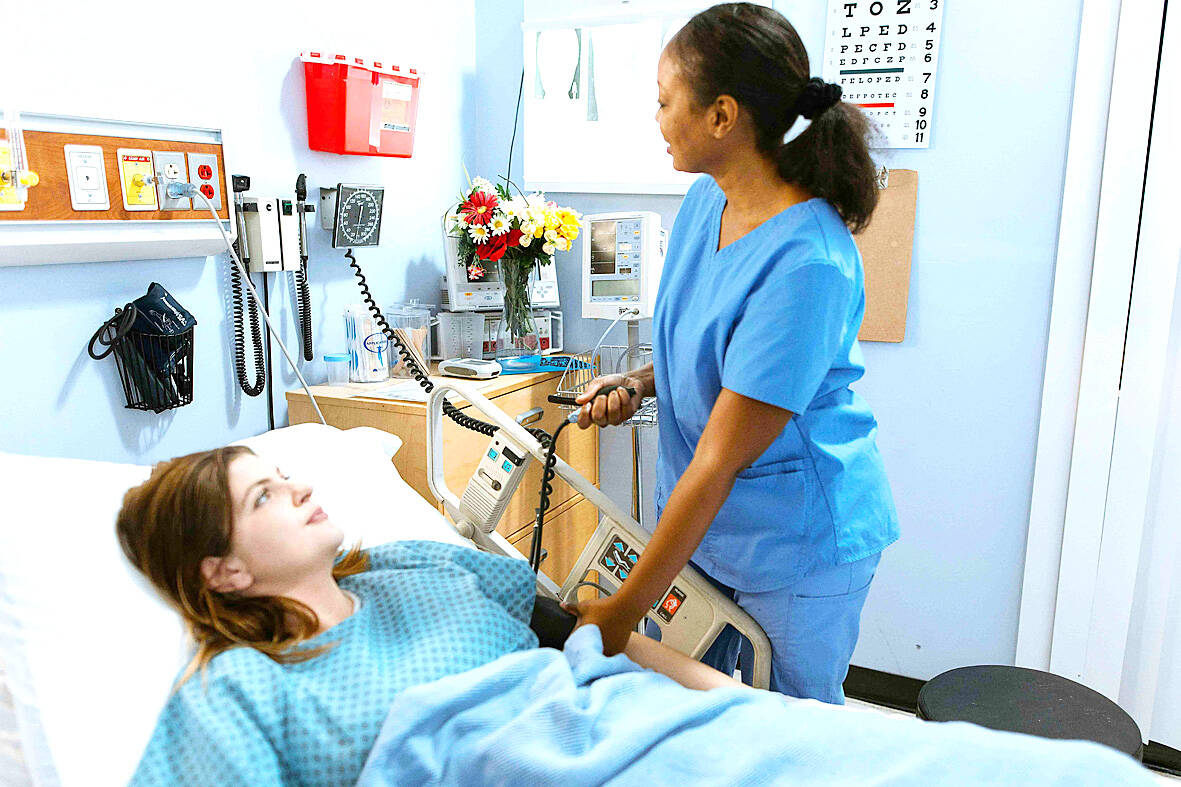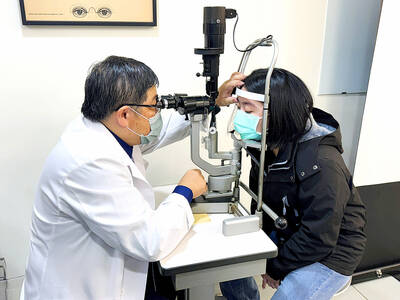對話 Dialogue
清清:華華,今天我會早一點下班,要去醫院看一個住院的朋友。
Qīngqing: Huáhua, jīntiān wǒ huì zǎo yìdiǎn xiàbān, yào qù yīyuàn kàn yíge zhùyuàn de péngyǒu.

Photo: Piqsels / 照片:Piqsels 提供
華華:她怎麼了?為什麼住院?
Huáhua: Tā zěnmele? Wèishénme zhùyuàn?
清清:她騎車發生車禍,撞斷了腿,送到醫院後,醫生很快就安排她開刀了。
Qīngqing: Tā qíchē fāshēng chēhuò, zhuàngduànle tuǐ, sòng dào yīyuàn hòu, yīshēng hěnkuài jiù ānpái tā kāidāo le.
華華:聽起來好痛喔!手術成功嗎?這需要好好休養了。
Huáhua: Tīng qǐlái hǎo tòng ō! Shǒushù chénggōng ma? Zhè xūyào hǎohǎo xiūyǎng le.
清清:很成功,但醫生說最快也要三個月到半年才能恢復。
Qīngqing: Hěn chénggōng, dàn yīshēng shuō zuìkuài yě yào sān ge yuè dào bànnián cái néng huīfù.
華華:別忘了買六個蘋果帶去,希望她從此平平安安、順順利利的。
Huáhua: Bié wàngle mǎi liù ge píngguǒ dàiqù, xīwàng tā cóngcǐ píngpíngān'ān, shùnshùnlìlì de.
清清:我本來想買梨帶去的,她喜歡吃梨。
Qīngqing: Wǒ běnlái xiǎng mǎi lí dàiqù de, tā xǐhuān chī lí.
華華:不行啦!梨跟「離開」的「離」諧音,太不吉利了!記得也不能跟她說再見,祝她早日康復就好!
Huáhua: Bùxíng la! Lí gēn “líkāi”de “lí” xiéyīn, tài bù jílì le! Jìdé yě bùnéng gēn tā shuō zàijiàn, zhù tā zǎorì kāngfù jiù hǎo!
翻譯 Translation
Qingqing: Huahua, I’ll be leaving work early today to visit a friend who is in the hospital.
Huahua: What happened to him? Why is she hospitalized?
Qingqing: She got into a motorcycle accident and broke his leg. After she was sent to the hospital, the doctors quickly scheduled her for surgery.
Huahua: That sounds so painful. Was the surgery successful? She’ll need a good recovery period.
Qingqing: It was very successful, but the doctor said it will take at least three to six months for her to fully recover.
Huahua: Don’t forget to bring six apples for her. That way, we can wish her peace and smooth recovery.
Qingqing: I was actually thinking of bringing pears. She likes eating pears.
Huahua: Yeah, don’t do that. The word “pear” sounds like “parting” in Chinese — it’s bad luck. Also, don’t say goodbye to her. Just wish her a speedy recovery.
生詞 Vocabulary
1. 住院 (zhùyuàn) be hospitalized, stay in the hospital
2. 車禍 (chēhuò) traffic accident
3. 撞斷 (zhuàngduàn) break, fracture
4. 開刀 (kāidāo) having surgery
5. 手術 (shǒushù) peration, surgery
6. 休養 (xiūyǎng) recuperate, convalesce
7. 諧音 (xiéyīn) homophone
8. 早日康復 (zǎorì kāngfù) [phrase] Get well soon; speedy recovery
教材音檔 Audio Files
國立清華大學華語中心提供
By National Tsing Hua University Chinese Language Center:

A: Recently, I’ve been seeing mosquitoes flying around in front of my eyes. The doctor said it’s the “flying-mosquito disease.” B: Flying mosquitoes? What a strange name. A: They’re actually called “floaters” in English, meaning floating debris. When fibrous substances in the vitreous body inside the eyeballs increase, floaters can appear in the visual field. B: Oh my goodness. Can you get rid of them? A: According to ophthalmologist Horng Chi-ting’s research, taking the enzymes of certain fruits is likely to help reduce floaters. A: 我最近一直覺得眼前有蚊子飛來飛去,結果醫生說是「飛蚊症」。 B: 飛蚊症?好奇怪的病名。 A: 英文名稱叫「floaters」, 也就是漂浮物的意思。 因為眼球的玻璃體中纖維化物質增多,導致視野出現漂浮物。 B: 天啊!要怎麼把蚊子趕走? A:

In Taiwan, people can use a platform to rent a power washer for a weekend or share unused garage space for someone’s storage needs. These are examples of the sharing economy, a consumption model that has gained widespread adoption worldwide. This approach allows people to rent or share assets like cars, homes or even services, typically through online platforms. This innovative model poses a simple yet powerful question: why purchase infrequently used items when sharing is more practical? By making useful but idle resources accessible, the sharing economy turns them into sustainable opportunities. Internationally, platforms like Airbnb and Uber have popularized

Bilingual Story is a fictionalized account. 雙語故事部分內容純屬虛構。 I stand by the Miluo River as dusk falls. The court betrayal is too much. I served Chu with loyalty. I forged alliances and fought corruption. But the whispers of jealous courtiers, the murmurs of treason, spoke louder. The king cast me out. The water looks calm. It promises peace. I step in. The river is cold against my legs. I hear shouts behind me — fishermen calling my name. I keep walking. The calls grow louder, but I do not turn around. The water rises to my chest. It pulls at me. I

A: What types of fruit enzymes should we take to help reduce eye floaters? B: According to a study published in the “Applied Sciences” journal by Taiwanese ophthalmologist Horng Chi-ting, pineapple, papaya and fig supplements can improve symptoms. A: Pineapples are in season now, so you should munch on more of those to get rid of floaters. B: Not quite. Enzymes can be damaged by our stomach acid if we eat the fruit directly. The doctor says taking fruit enzyme capsules is better for absorption. A: Most importantly, we should reduce our use of personal electronics to prevent floaters from